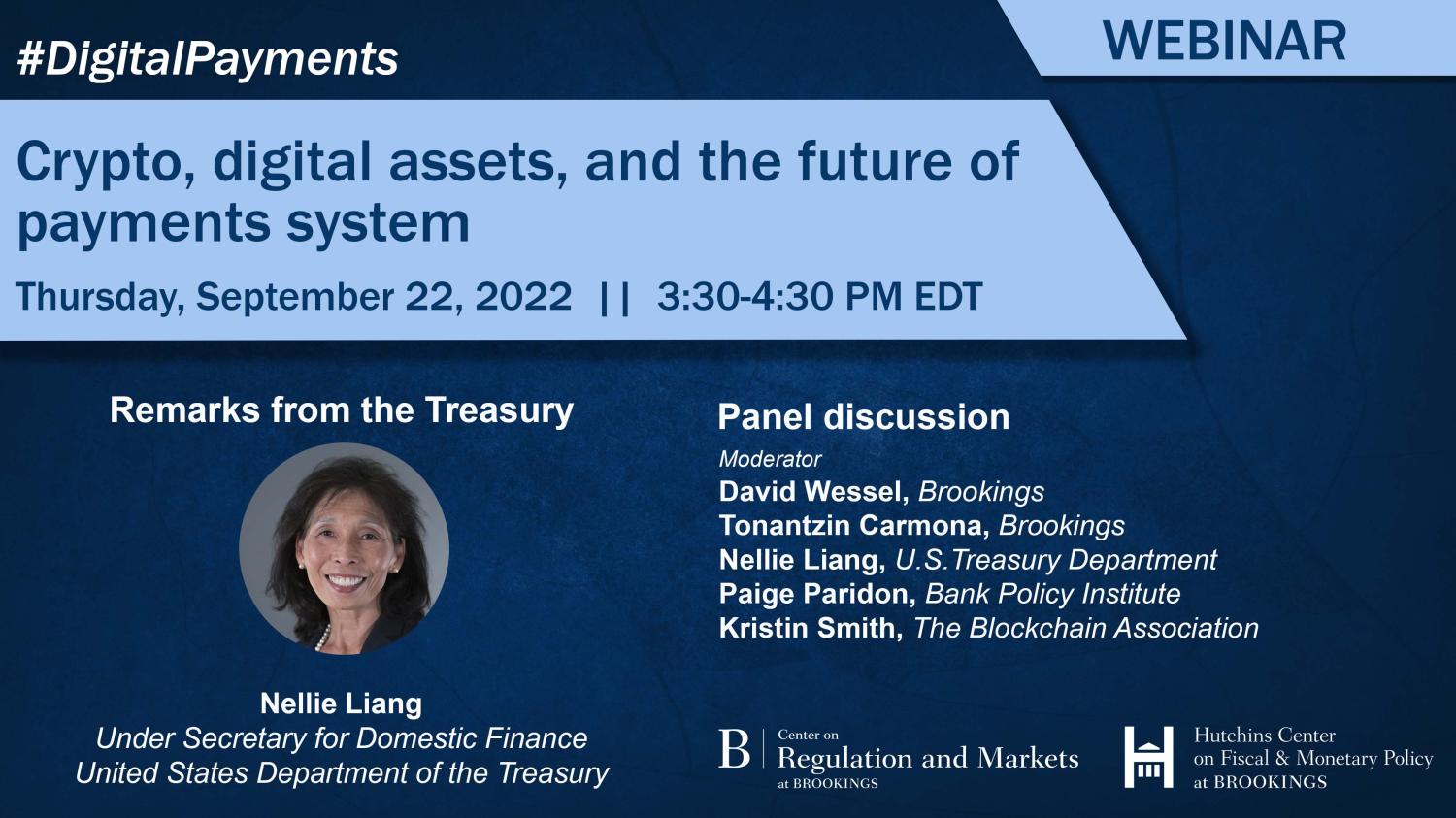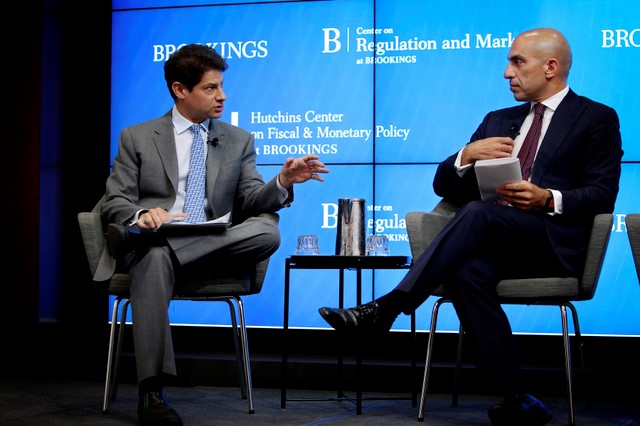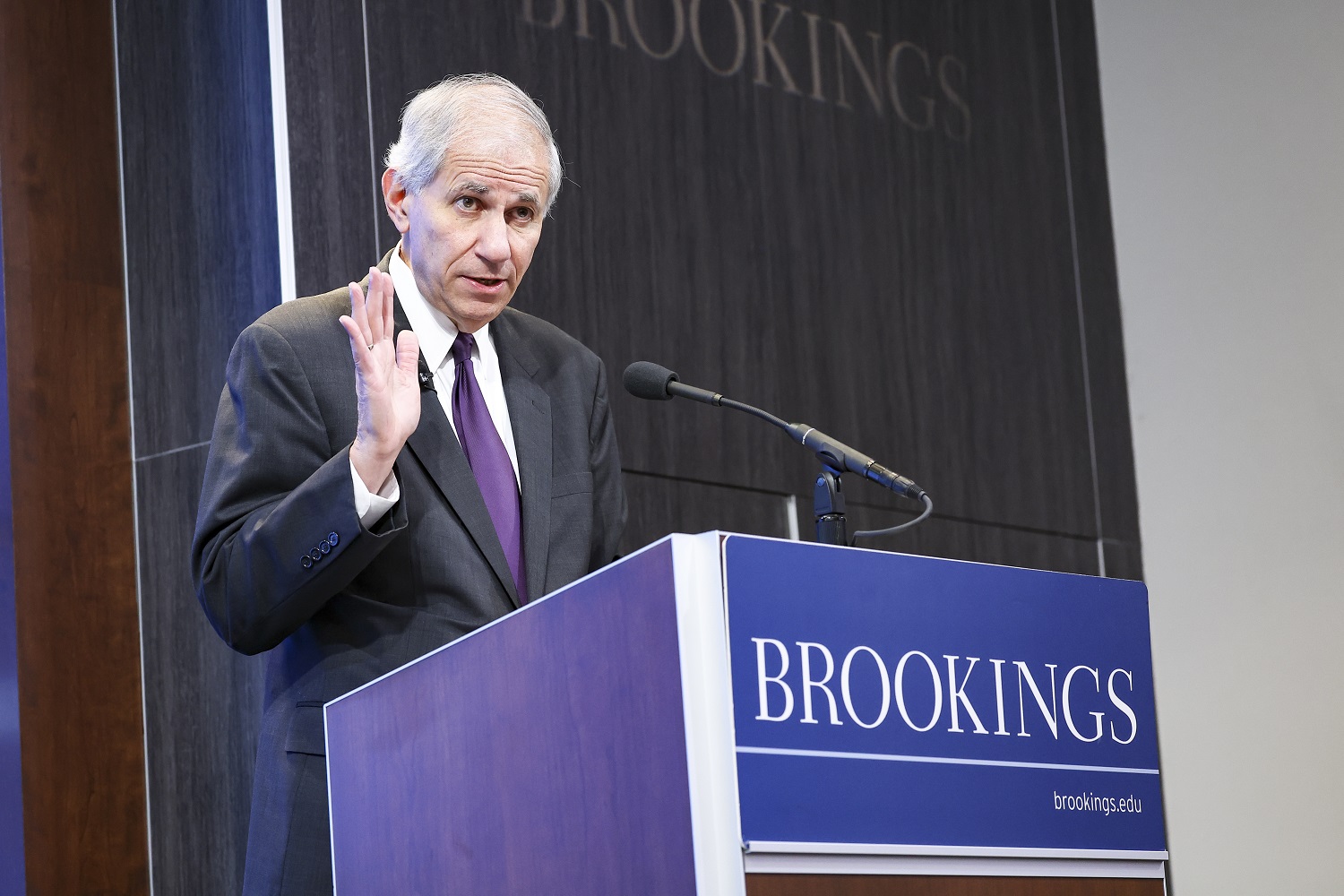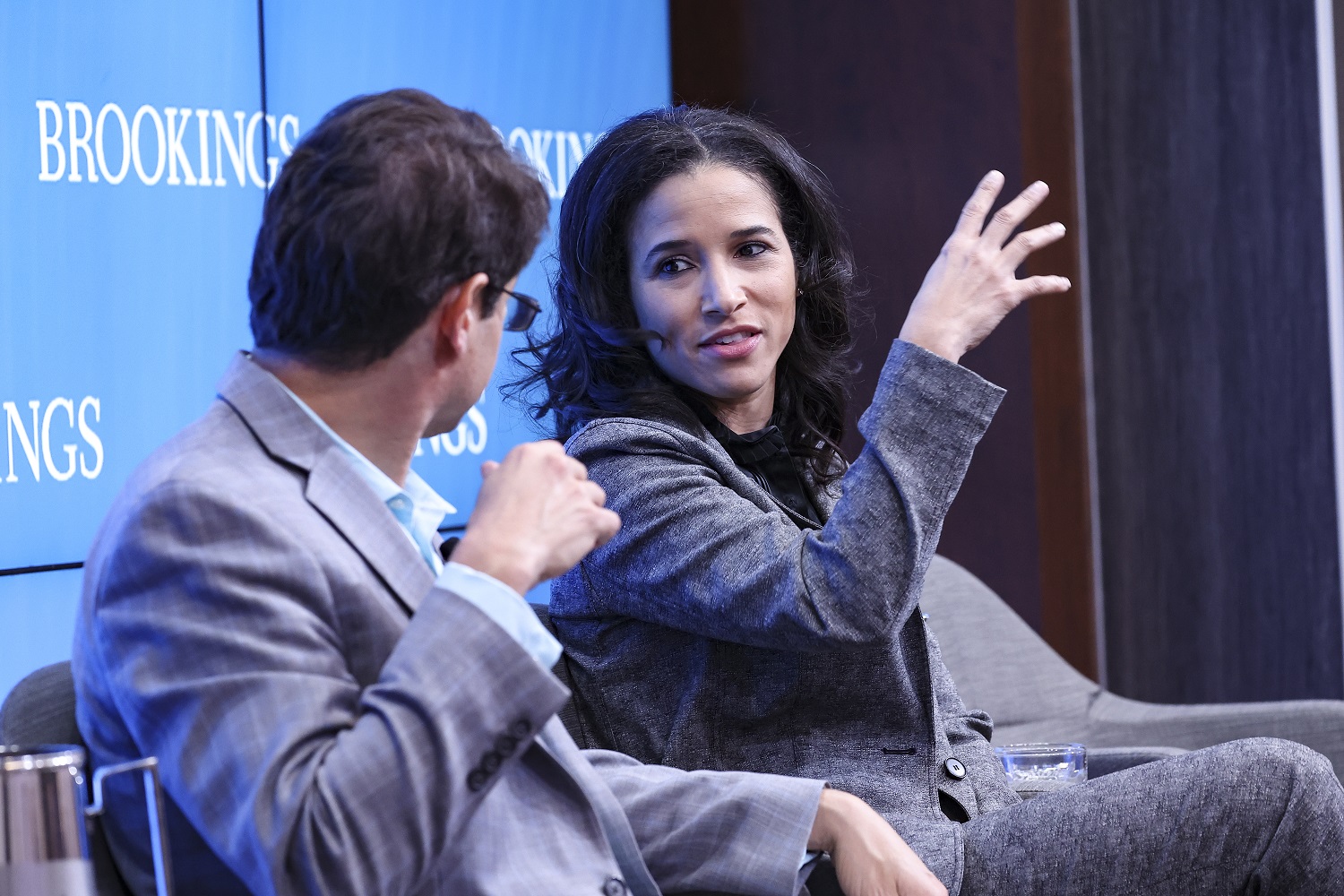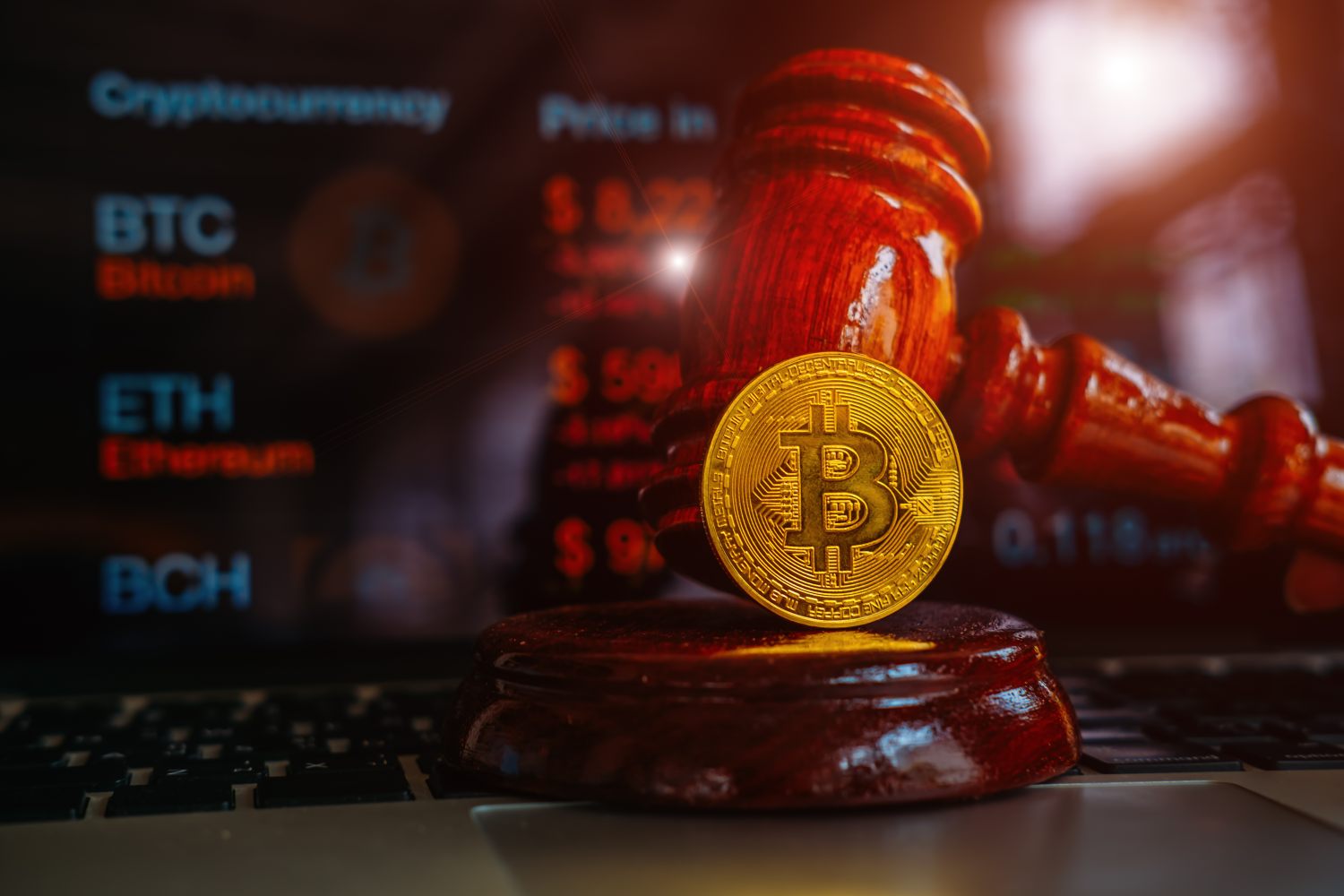The last year has been a tumultuous one for cryptocurrency and digital asset markets. Volatility and scandals led to trillions in losses, including the spectacular collapse of crypto trading firm FTX. As these markets have grown and their risks have become more apparent, calls for improved regulatory protections have grown louder. In 2022, Brookings Economic Studies program hosted several events focused on regulation of digital assets and published working papers on some of the latest proposals.
Crypto, digital assets, and the future of the payment system
Thursday, September 22, 2022
3:30 PM – 4:30 PM EDT
Speakers:
- Nellie Liang Undersecretary for Domestic Finance – United States Department of the Treasury Former Senior Fellow – Economic Studies
- Tonantzin Carmona David M. Rubenstein Fellow – Brookings Metro
- Paige Paridon Senior Vice President and Senior Associate General Counsel – Bank Policy Institute
- Kristin Smith Executive Director – The Blockchain Association
Key takeaways:
- The use of crypto to deliver financial services at lower cost, higher speed, and without intermediaries has not yet materialized, Liang said, nor is there much evidence that crypto is delivering the hoped-for increase in financial inclusion.
- Carmona suggested that if the U.S. already had a robust, real-time payment system, there wouldn’t be so much attention on crypto. Payment-system problems should be addressed in a variety of ways as opposed to seeking a role for digital currencies.
- Paridon argued that digital currency players should be subject to bank-like regulation. Smith said the industry favors “appropriate regulation,” but argued against a one-size-fits-all approach.
- As the Treasury and Federal Reserve ponder merits of a central bank digital currency (CBDC), Paridon and Smith highlighted risks of a retail CBDC (where everyone could have an account at the Federal Reserve), including threats to privacy and increased chances of a run on bank deposits and money market funds in a crisis.
Digital asset regulation: The federal market regulator perspective
Monday, July 25, 2022
2:00 PM – 3:30 PM EDT
Speakers:
- Aaron Klein Miriam K. Carliner Chair – Economic Studies Senior Fellow – Center on Regulation and Markets
- Rostin Behnam Chairman – Commodity Futures Trading Commission
- Michael Piwowar Executive Director, Center for Financial Markets – Milken Institute Commissioner (former) – U.S. Securities and Exchange Commission
- Hilary J Allen Professor – American University Washington College of Law
- Mark Wetjen Head of Policy and Regulatory Strategy – FTX Commissioner (former) – Commodity Futures Trading Commission
Key takeaways:
- Benham urged Congress to clarify the regulatory spheres between securities, commodities, and derivatives (and possibly draw some new ones around crypto)
- Allen cautioned against bringing crypto into the regulatory system for fear of giving investors false guarantees around the quality of these assets and markets.
- Benham noted that, unlike other commodities CFTC regulates where participants are often large insitutions or wealthy individuals, crypto has “more vulnerable investors,” prompting him to acknowledge that “It’s incumbent on us to educate, to inform, to disclose risks involved.”
Digital asset regulation: The federal prudential perspective
Thursday, October 20, 2022
10:00 AM – 11:30 AM EDT
Speakers:
- Martin J. Gruenberg Acting Chairman – Federal Deposit Insurance Corporation
- Aaron Klein Miriam K. Carliner Chair – Economic Studies Senior Fellow – Center on Regulation and Markets
- Gordon Liao Chief Economist – Circle Internet Financial
- Brooke Ybarra SVP, Innovation & Strategy – American Bankers Association
- Lee Reiners Policy Director – Duke Financial Economics Center
Key takeaways:
- Gruenberg noted that the FDIC has “seen several instances where crypto asset companies have given customers the impression that they are protected by the government safety net when in fact they are not.” The FDIC continues to take an aggressive position when consumers are given false impression that their crypto is structured such that it is like a government insured bank account.
- Gruenberg explained that the FDIC would be far more comfortable with permissioned blockchain systems and highly skeptical of permissionless blockchains, which he said make it “nearly impossible to ensure compliance with anti-money laundering and counterterrorism financing requirements.”
- Liao and Reineers clashed on whether crypto, in particular stablecoins, have real economic value and whether they should be subject to greater regulation. Ybarra disagreed that “cryptocurrency is going to serve that financial inclusion need” and posited that stablecoins are more like bank deposits than payment instruments at the moment.
Digital asset regulation: The state perspective
Tuesday, November 15, 2022
2:00 PM – 4:00 PM EST
Speakers:
- Adrienne A. Harris Superintendent – New York Department of Financial Services
- Aaron Klein Miriam K. Carliner Chair – Economic Studies Senior Fellow – Center on Regulation and Markets
- Dennis Kelleher President and CEO – Better Markets
- Jai Massari Cofounder & CLO – Lightspark
- Pete Marton Virtual Currency Chief – New York State Department of Financial Services
- Sarah Hammer Managing Director – Wharton School, University of Pennsylvania Adjunct Professor – University of Pennsylvania Law School
- Andrea Donkor SVP, Global Regulatory Relations and Consumer Practices, Chief Compliance Officer – PayPal
- Jack Solowey Policy Analyst, Center for Monetary and Financial Alternatives – Cato Institute
- Kaitlin Asrow Executive Deputy Superintendent of Research and Innovation – New York State Department of Financial Services
Key takeaways:
- Harris noted that New York had not approved FTX’s application to conduct crypto operations in New York under their specific Bit.License system which “has kept New Yorkers safer than people in other parts of the country.” She pointed out this extends not just to FTX but to other crypto offerings, including the stablecoin Tether.
- Marton pointed out New York has a very specific set of capital adequacy requirements calibrated to specific crypto business models, including 1-to-1 asset backing for stablecoins. Kelleher heaped praise on New York’s system, stating that “we’d all be better off if Congress would just adopt the New York Department of Financial Services regime and be done with it.”
- Carmona called for consumer protections to be strengthened given the opacity with which many crypto firms operate. Donkor highlighted the benefits Regulation E has provided in settling consumer disputes and that while it does not explicitly exist for crypto, Paypal is offering it.
The future of the US dollar: Are its days numbered as the world’s dominant currency?
Tuesday, June 7, 2022
10:30 AM – 12:00 PM EDT
Speakers:
- Kathryn M. Dominguez Professor of Economics and Public Policy – University of Michigan
- Barry Eichengreen Professor – University of California, Berkeley
- Donald Kohn Robert V. Roosa Chair in International Economics Senior Fellow – Economic Studies
- Zach Pandl Managing Director, Global Investment Research – Goldman, Sachs & Co.
- Eswar Prasad Senior Fellow – Global Economy and Development
Key takeaways:
- Stablecoins that have the most traction are those backed by U.S. dollars, not other reserve currencies, Prasad said.
- The advent of a Chinese digital currency isn’t going to fundamentally alter anything in international finance, Prasad said. Most international payments are already digital.
- There are, he said, some benefits of a digital U.S. dollar, but there are issues: Would it affect private sector innovation in terms of payments? And will it have any implications for privacy?
- He also said we may be able to get the advantages—easier and cheaper payments domestically and internationally—without a U.S. central bank digital currency.
Debate: Should the federal government regulate crypto?
Tuesday, December 20, 2022
9:00 AM – 10:00 AM EST
Speakers:
- Peter Conti-Brown Class of 1965 Associate Professor of Financial Regulation – Wharton School, University of Pennsylvania Nonresident Fellow – Economic Studies, The Brookings Institution
- Stephen G. Cecchetti Rosen Family Chair in International Finance – Brandeis International Business School
Key takeaways:
- Conti-Brown argued in favor of regulation, particularly new rules from banking and securities regulators that would close the gaps in existing regulations through which many crypto activities are sliding.
- Cecchetti argued against regulation, asserting that it would confer legitimacy on crypto that it doesn’t deserve and predicting that crypto is already dying.
- Both oppose any legislation, though. Conti-Brown said it would prematurely freeze in amber rules for a rapidly evolving technology. Cecchetti said existing laws against fraud and the like should suffice.
Authors:
- Igor Makarov Associate Professor of Finance – London School of Economics and Political Science
- Antoinette Schoar Stewart C. Myers-Horn Family Professor of Finance and Entrepreneurship – MIT Sloan School of Management
In “Cryptocurrencies and Decentralized Finance,” published in the Spring 2022 Brookings Papers on Economic Activity, Igor Makarov of London School of Economics and Antoine Schoar of the MIT Sloan School of Management say that proliferation of finance applications built on blockchain technology could reduce the role of financial intermediaries and their profits. However, it could also reduce competition and pose significant challenges to regulators.
Authors:
- Timothy G. Massad Nonresident Senior Fellow – Economic Studies, Center on Regulation and Markets
- Howell Jackson James S. Reid, Jr., Professor of Law – Harvard Law School
In their Hutchins Center working paper, “How to improve regulation of crypto today – without congressional action – and make the industry pay for it,” Timothy Massad, former chair of the Commodity Futures Trading Commission and a nonresident fellow at Brookings, and Howell Jackson of Harvard Business School propose that the CFTC and the Securities and Exchange Commission create and oversee a new self-regulatory organization to govern the crypto industry.
Authors:
- Howell Jackson James S. Reid, Jr., Professor of Law – Harvard Law School
- Timothy G. Massad Nonresident Senior Fellow – Economic Studies, Center on Regulation and Markets
Jackson and Massad, in “The Treasury Option: How the U.S. can achieve the financial inclusion benefits of a CBDC now” in the Series on Financial Markets & Regulation, say the Treasury would create digital accounts to provide payment services that would be especially valuable for unbanked and underbanked individuals.
Authors:
- Howell Jackson James S. Reid, Jr., Professor of Law – Harvard Law School
- Timothy G. Massad Nonresident Senior Fellow – Economic Studies, Center on Regulation and Markets
- Dan Awrey Professor of Law – Cornell Law School
Jackson, Massad, and Dan Awrey of Cornell Law School, in a Hutchins Center working paper, “How we can regulate stablecoins now – without congressional action,” argue that federal regulators, even without new legislation, could regulate stablecoins. They propose that the comptroller of the currency create a national trust bank charter, organized as a subsidiary of a depository institution, that would allow them to issue stablecoins.

